myHIN Blog

April 29, 2013
Response to Dr. Payton’s Blog Entitled “Sound Your Voices”
Jackson State University
Advisor: Dr. Lawrence T. Potter, Jr., Dean of the College of Liberal Arts
Why is it important for young black women to discuss the issue of HIV?
HIV should be an issue discussed among black women and the entire black community. The stats among black women are increasing at alarming rates. According to the C.D.C., most of the new cases that arise come from black women involved in heterosexual relationships. In addition, black women are still showing rates that are higher than any other race. Black women should become more vocal about not engaging in unprotected sexual relationships.
Furthermore, black women need to become adult advocates to educate each other about HIV and to become aware of the increased risk associated with the virus. However, black women must educate themselves first. Black women have to stop playing the victim role and start rising above the stats. Black women must stand as a united defense about the spread of HIV. Some ways that can help black women to become more vocal is increasing their knowledge about the virus, taking an initiative to protect yourself and others through getting tested, and sharing the information about HIV with friends and partners.
See myhealthimpactnetwork.org on the Web for other blogs, videos, newsletter signup and the newly released Android mobile app. Follow Dr. Payton and the research team @myhealthimpact on Twitter.
Follow us at tumblr.myhealthimpactnetwork.org (Tumblr)
Follow us on Twitter @myhealthimpact
Share
Comments
comments powered by DisqusIn Partnership with: Poole College of Management, College of Humanities and Social Sciences, National Science Foundation, Penn State
Take Action, Get Tested: Find Your Local Testing Center Why Get Tested?
